Poulenc’s Dialogues des Carmélites is a very unusual opera. It breaks all the rules and yet, done well, is an immensely compelling piece of music theatre. There are no show stopper arias. The ensemble numbers are mainly drawn from Catholic liturgy. And yet it maintains a coherent and compelling narrative arc that builds steadily to an emotionally devastating conclusion. The Glenn Gould School’s current production at Koerner Hall directed by Stephen Carr gets all the elements right and makes for a memorable evening at the opera.
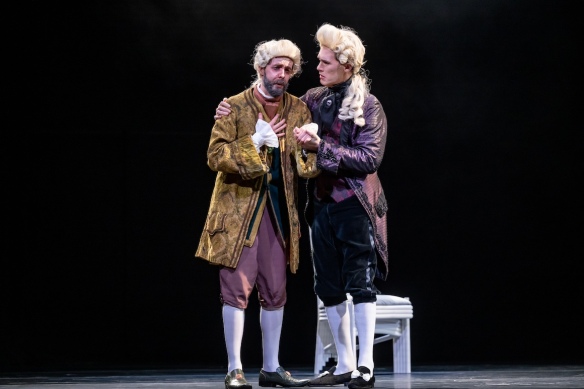
The production is conceptually very simple. Costuming is France 1792. The set is just a few bits of a sort of railing/screen. There are minimal props. It’s minimalist and straightforward but the Personregie is well thought out and that seems to be all this piece needs. Remember Robert Carsen’s production at the COC in 2013? It used more people but was similarly minimalist. This one is dark too, with highly contrasting lighting used to great dramatic effect. The ending is as effective as any version I’ve seen.
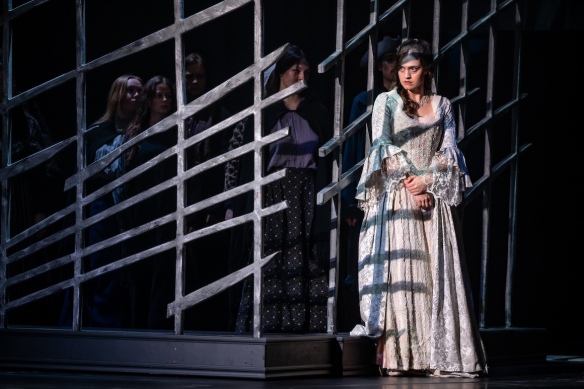
So there’s nowhere to hide for the performers and they do a terrific job. I think in this production, perhaps more than most, it’s Blanche de la Force who is carrying the emotional arc of the piece. Her complex psychological journey from out-of-place young aristo to acceptance of what “peace” means for her is very clearly brought out here in a very fine performance by Elena Howard-Scott. It’s hard to pin down what makes her so effective but she is.
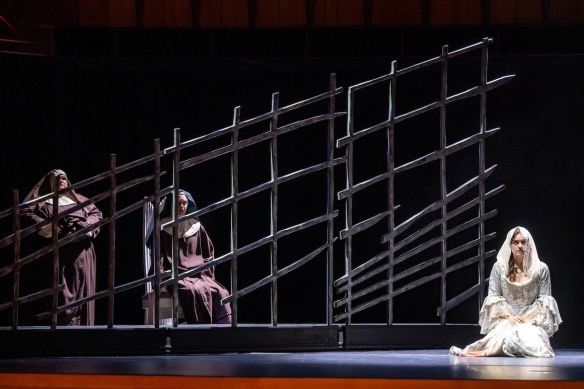
The other major roles are also done very well. Jennifer Routhier is suitably tormented and dramatic as the Old Prioress. Emma MacNeil is quite charming as the somewhat enigmatic Soeur Constance (why is she in a convent anyway?). Emma Pennell is solid as a rock as Mère Marie; not the most complex character but one around whom much of the plot revolves. After Blanche, perhaps the most complex role is Mme Lidoine. It’s not flashy and it’s psychologically extremely complex[1]. Portraying that is a challenge and it’s well met by Alexa Frankian. One thing the ladies all have in common is that while their music isn’t flashy it isn’t easy either and doing justice to it and to the character development is demanding. They all rise to it.
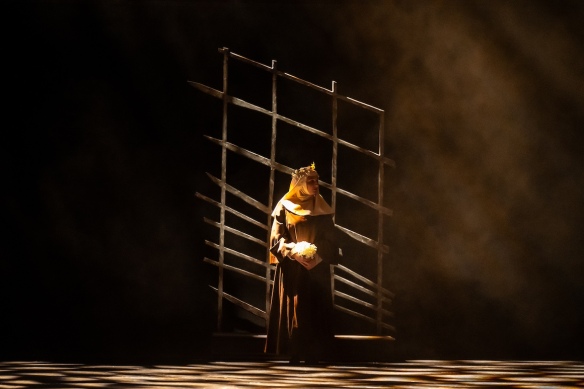
Of the men I thought Jeffrey Liu as the Chaplain was the most interesting. He’s got presence and sings rather well. Yannik Gosselin and Colin Mackey make an effective duo as de la Force pêre et fils. They both sing well and act convincingly (despite the wigs!) but there’s only so much one can do with characters whose dramatic purpose is, essentially, to show what Blanche is not. The other characters; male and female, are done well with a special nod to the other nuns who really have a lot to do and are really good in the final scene.
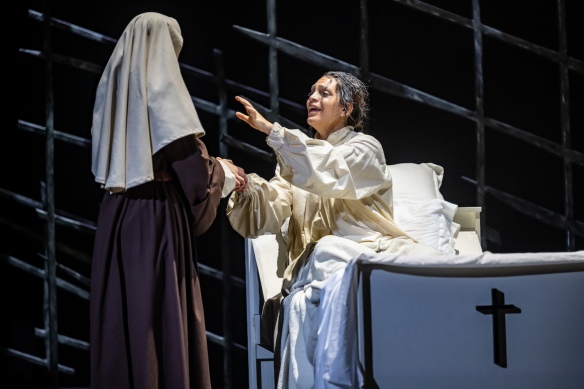
It’s a complex score; essentially tonal but unusual in that it often features quite small groups of instruments, which makes some parts quite exposed. The GGS orchestra is excellent and I noted some particularly fine playing from the woodwinds. Nicolas Ellis’ conducting was nicely paced, supported the singers well and provided dramatic counterpoint where it was needed.

This is, bar a couple of ringers, a student production. You wouldn’t know it. It’s an accomplished and thoroughly professional presentation of one of the most emotionally compelling operas in the canon. There’s one more performance, on Friday night, and I highly recommend it.
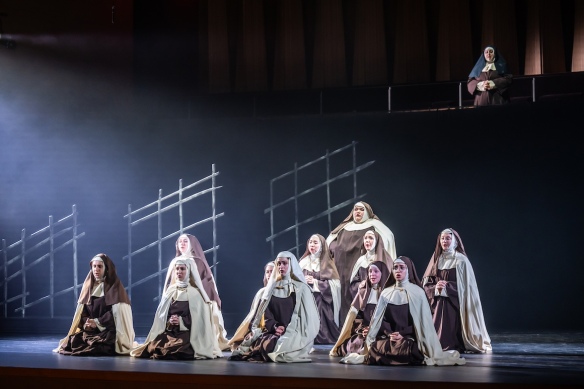
fn1: The psychology and theology of Dialogues is extremely complex and the latter is not entirely orthodox. There is probably a doctoral thesis in unravelling all the strands.
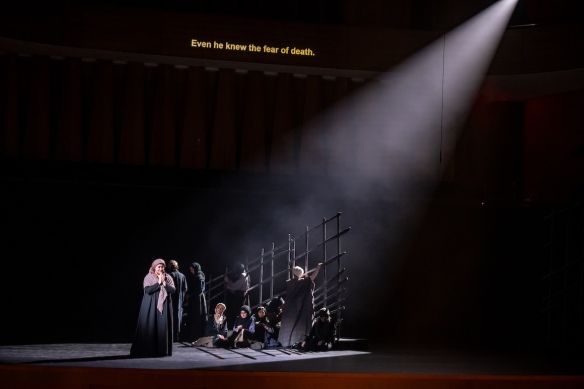
Photos by Dahlia Katz.
